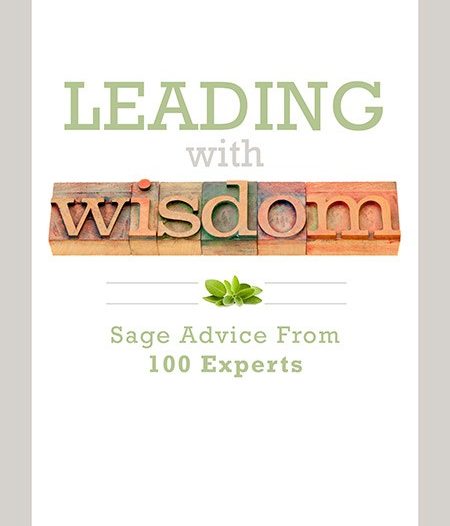
One of the chapters in my book, Leading with Wisdom: Sage Advice from 100 Experts, was titled “Vulnerability is a Strength.” But when the manuscript came back from the editor it was titled: “Leaders Connect with Empathy and Compassion.” Since the book is written for an audience of men and women, the editor was concerned that vulnerability would not resonate with men. In our society, we tend to think of being vulnerable as a weakness. Ironically, my book came out in 2013 the same year as Brene’ Brown’s TEDtalk “The Power of Vulnerability.”
Since Brown’s TEDtalk, the concept of vulnerability has become more mainstream. In fact, Adam Bryant in discussing his book Corner Office based on more than 500 interviews with CEOs, said “Sharing our personal stories to make a point of what is important humanizes us as leaders. Doing this demonstrates vulnerability which leads to trust.”
In my book, the chapter on empathy and compassion includes how leaders need to understand death, grief, and loss because there is so much hurt with which people are dealing. Not only do people in the workplace deal with death, but companies are dying and whole industries. We often long for how things used to be and miss what we are losing along the way.
During Joe Biden’s presidential campaign, he often refers to his late son Beau. On the Late Show With Stephen Colbert, Biden reminded me of how being vulnerable can be a strength because it is so humanizing. People can relate to someone who has struggled with death and loss because many people are hurting from something or someone. Being vulnerable is also authentic and genuine as it reflects our real character—not who we think we should be or how we think we should act.
Even David Brooks in the New York Times had a piece on Biden where he says:
“But then came Biden’s moment with Stephen Colbert. The discussion of his own grief over his son Beau’s death was beautiful and genuine and revealed the golden heart that everybody knows is at the core of the man.
Biden talked about Beau. “My son was better than me. And he was better than me in almost every way.” He gestured toward how fluid grief is, how it goes round and round, hides for a few hours and then suddenly overwhelms. But there was something else embedded in that Colbert moment: a formation story.
Every presidential candidate needs a narrative to explain how his or her character was formed. They need a storyline that begins outside of politics with some experience or life-defining crucible moment that then defines the nature of their public service.”
Leaders are in positions to influence the lives of others. Regardless of the organization or institution, profit or not-for-profit, people want to follow and work with people they believe to be authentic—who will admit mistakes, who can empathize with their situation.
Biden has been criticized in the past for being too emotional and speaking from the heart—almost TMI (too much information) at times. But he is getting recognition for being humble and authentic. I am reminded of one of my favorite quotes in the book The Little Prince by Antoine de Saint-Exupéry
“And now here is my secret, a very simple secret: It is only with the heart that one can see rightly; what is essential is invisible to the eye.”
How willing are you to be vulnerable?
What is your perception of the concept of vulnerability?
 Sign Up and Download Your FREE Copy of The Top 5 Actions For Creating Your Own Breadcrumb Legacy™
Sign Up and Download Your FREE Copy of The Top 5 Actions For Creating Your Own Breadcrumb Legacy™

